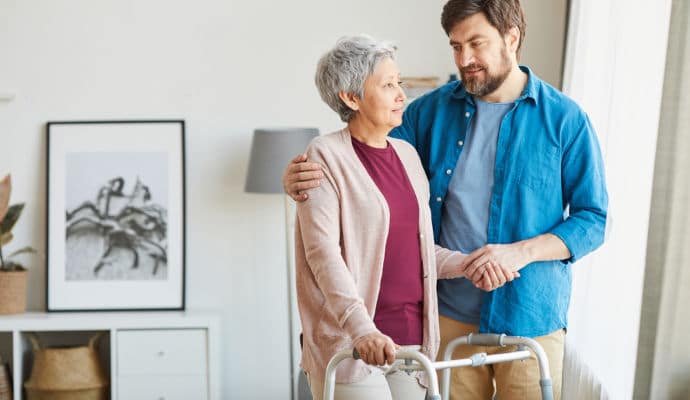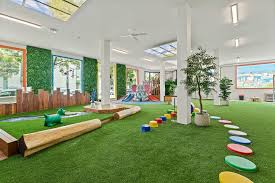Many health and safety concerns arise for adults with older parents. One safety risk, in particular, is falling and getting injured, which becomes more common the older you get. Feeling concerned about your parents’ risk of losing their balance, especially if they live alone, is common, but there are measures you can take to ensure their safety.
Why Is Falling Dangerous for Seniors?
Adults can sometimes slip and fall without a significant risk of injury, but the dangers of falling become more severe with age. According to the CDC, roughly three million seniors are treated in emergency rooms for fall-caused injuries in the U.S. every year.
In addition, over 95% of hip fractures in older adults are caused by falls. Depending on the age of the individual and their health status before the fall, injuries like hip fractures can permanently affect mobility and lead to an even greater risk of falling again.
How to Prevent Your Parent From Falling
If you want to help reduce the likelihood that your parent becomes injured in a fall, there are several steps you can take. A few tips that can make a huge difference in your parent’s physical safety as they age include the following:
Remove Falling Hazards and Add Safety Precautions
Your first priority should be getting rid of any items that might make it easy for an older adult to slip and fall. Loose rugs without non-slip adhesive are among the most dangerous falling hazards in the home, closely followed by electrical cords that obstruct pathways.
Once you’ve cleared these out of the way, add some extra features that might make your parents’ home safer. Plug-in lights for hallways and other areas with limited lighting can help reduce the risk of falling.
Buy Non-Slip Shoes
Even if your parent’s home is virtually fall-proof, the shoes they wear might put them in danger of a severe injury. Shoes without grippy soles can make it easy to lose traction and balance if you misstep, but the right shoes can help prevent such an outcome on all kinds of flooring.
The best shoes for avoiding falls might be an investment, but the additional peace of mind will be worth it. Additionally, many non-slip shoes provide ample arch support and comfort, meaning your parent will love wearing them.
Encourage Strength-Building Exercise
Falling happens when a person loses balance, so building strength is essential as you age. Exercise routines like Tai Chi or low-impact weightlifting help strengthen muscles while improving one’s sense of balance. In addition, exercising regularly can also increase bone density, which means if your parent does fall, they might be less likely to fracture or break a bone.
Prioritize Proper Nutrition
Older adults can lose their balance for many reasons, but one very preventable reason is a lack of food and water. Maintaining good nutrition is key as you age, as it can help maintain your strength and mobility while also preventing lightheadedness or feelings of weakness.
A healthy diet includes many fruits and vegetables, lean protein sources like chicken or fish, and complex carbs like quinoa, wheat bread, and brown rice. Drinking lots of water every day is essential, too! If your parent has trouble cooking, help them prepare many ready-to-eat meals that include all the nutrition they need.
Visit the Doctor Regularly
Regular doctor visits will help you and your parents stay on top of their health conditions and needs. Issues like arthritis, diabetes, vision impairment, and osteoporosis can all significantly increase your parent’s likelihood of falling. Thankfully, your parent’s doctor can provide specialized advice regarding keeping your parent safe at home or recommending assisted living facilities in the area.
Take the Steps to Prevent a Fall
Falling is an unfortunately common risk among older adults, especially those who live alone and don’t have a loved one or caregiver to help keep them safe. You can ensure your parent is more secure as they age by being there and assisting with their daily tasks. The more precautions you take, the more you’ll be able to prevent serious injuries caused by falls for your loved one.





Be First to Comment